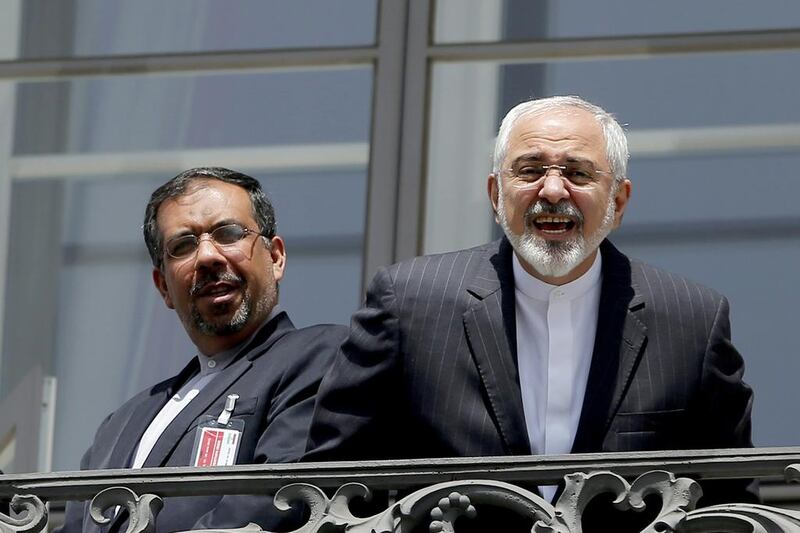The Iran nuclear deal has been agreed and there is jubilation in Iranian and western quarters. But there are also ramifications for the Arab world. The best ways to contain the damage won’t come from the West. Rather, Arab leaders need to recognise their own historic responsibilities.
The deal has gone ahead above and beyond the concerns of much of the region, and is potentially a seismic shift. The right response now is not to panic.
History could have been different. It could have easily been Iran that would have been worried about the positive impulses emanating from the Arab world on its own population. But that would have required an embrace of the impulse of the Arab awakening in 2011.
Instead, in 2015, the region sees in ISIL the rise of the cruelest extremist group in history and an Iranian regime that is poised to become unshackled.
The impact of those two main challenges is felt most of all in Syria, which will likely go down as the great tragedy of this era.
If history is kind, it will mark the repugnant brutality of the Assad regime. If history is more accurate, it will note the utter failure of the international community in general. As Washington celebrated this deal, there was nary a mention of the effect the Iran deal has on the Syrian struggle. But if history is yet more precise, it will lament the lack of response to the bloodshed in Syria.
There are no saviours for Arab capitals to turn to. Their future can only be built or destroyed by themselves. They did lose an extraordinary chance in failing to embrace the Arab awakening, with many rejecting it. But as the old maxim goes: “If you cannot attain the whole in its entirety, do not leave the whole completely.”
Two agendas have to be addressed. The first is human resources. A deep investment in the people of this region is not a luxury – it is a strategic necessity of the highest order.
In parts of the Arab world, there is also the fact that economic realities mean that large numbers of young people will be seeking employment in the years to come – and it is unclear they will find it, unless bold and brave proposals are made and followed.
But the challenge is not simply about jobs and skills. It is also about the strategic direction of society.
If the Arab world is concerned about the influence of Iran on the one hand and ISIL on the other, then it needs to promote a model of governance that will be the pride of Arab citizens.
Rather than answer Iran’s sectarianism with more of the same – as some have done – pluralism and respect for difference is a more effective response. In broad terms, the protection and widening of fundamental rights is to the region’s benefit. A comprehensive security solution must be a human security solution – and that includes the upholding of all fundamental rights.
On the regional agenda, there are many challenges – but there is one that seems to have been missed in the midst of the jubilation around the Iran deal in most western capitals.
The deal is the better alternative from a range of rather poor options, and should be supported as such. But it comes at the same time that Iran supports the most egregious regime in the Arab world.
Bashar Al Assad’s policies also fuel the conditions that make the growth of ISIL ever more certain. The Arab world must lead on saving this country from further destruction. If Arab leaders would be bold, they should be clear Tehran’s road to normalisation with Arabs at large goes through a free and pluralistic Damascus.
The best defence for the Arab world in the face of a stronger Iran is simple: it is an Arab world that is more resilient and more capable of solving its own problems, internally and otherwise. The Iran deal is here and will probably stick. The Arab world ought to shift into the next gear, and do itself justice. It’s long overdue to do just that. That kind of resilience will be its best defence.
Dr HA Hellyer is an associate fellow in international security studies at the Royal United Services Institute in London, and the Centre for Middle East Policy at the Brookings Institution in Washington, DC
On Twitter: @hahellyer





